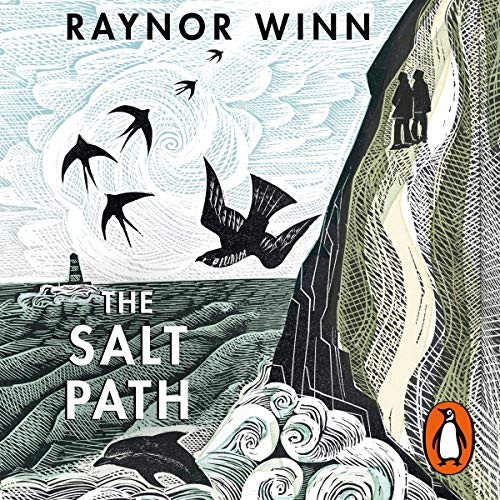Book Review on Raynor Winn's The Salt Path

From the very first page of The Salt Path by Raynor Winn, I was captivated by her storytelling skills. Her words draw you in, making the scenes feel almost palpable. The vivid portrayal of Raynor and Moth, huddling under their stairs as the bailiffs tried to find a way into the house, highlights her ability to blend vulnerability with warmth and humour. For me, the real strength of the book was how she nailed the emotions they’d gone through.
The story of Moth and Raynor is more than just a challenging hike; it’s about confronting life’s real adversities. Having lost their home, facing Moth’s deteriorating health, and having only £50 to their name when they start their adventure, their challenges are massive. Their hike along the 630-mile South West Coast Path is a testament to resilience and love – a raw, real bond.
The hike isn’t completed in one straightforward trip. For example, they find brief respite with an old friend, Polly. Moth gets busy plastering the walls of their makeshift abode, but his health declines dramatically during this stint. Ray, ever resourceful, slips into the role of a sheep wool packer, but by mid-summer they are back on the road, when Moth’s health seems to almost miraculously recover. I don’t know, call me a cynic, but Winn’s beautifully lyrical prose at this point made me wonder about the line between reality and embellishment. This then made me doubt the authenticity of early moments like the rehoming of chickens and the tale of Smotyn the sheep. I have a friend who never lets the truth get in the way of a good story and I have a feeling that Raynor Winn might have a similar outlook.
To summarize I’d say that The Salt Path weaves a tale of love, challenge, and self-discovery, reminding us that even when life is tough, resilience and love can guide the way. A captivating read, but perhaps best taken with a grain of salt.
Book Club Questions on Raynor Winn’s The Salt Path
• From the very opening pages, Raynor Winn’s storytelling deeply connects with the reader. How did her narrative style impact upon your reading experience and understanding of their journey?
• Moth’s health plays a central role in the narrative. How did you perceive the correlation between the physical act of walking and his health progression? Do you believe nature has healing properties?
• Discuss the significance of the Welsh farmhouse to Raynor and Moth. What did it represent, and how did its loss shape them?
• Throughout their journey, Raynor and Moth faced various reactions from people they met. What does this say about society’s views on conformity, homelessness, and alternative lifestyles?
• Raynor shares several stories about encounters on their journey. How did the telling of these encounters influence your trust in the narrative? Do you think it’s important for memoirs to be entirely factual, or is there room for embellishment?
• The couple’s relationship is central to the story. How do you view their bond, and in what ways did their shared adversities strengthen or challenge their relationship?
• The South West Coast Path almost becomes a character in the story. How did the detailed descriptions of the environment and nature enhance the narrative for you?
• The couple’s decision to even begin their journey, in the face of Moth’s deteriorating health, is a bold one. Do you agree with their choice? Why or why not?
• The memoir ends with Raynor and Moth finding an apartment at the end of the path. How did you feel about this conclusion? Was it fitting, or were you hoping for a different ending?
• If you were faced with similar adversities as Raynor and Moth, would you consider undertaking such a journey? Why, or why not?
• What do you believe is the primary emotion or message the author wants the reader to take away from the book? How effectively do you think they conveyed it?
Book Club Questions on Raynor Winn’s The Salt Path (for if you haven’t read the book!)
• Memoirs often provide intimate insights into the author’s personal experiences and emotions. How do you think this genre affects a reader’s connection with the story, compared to fiction?